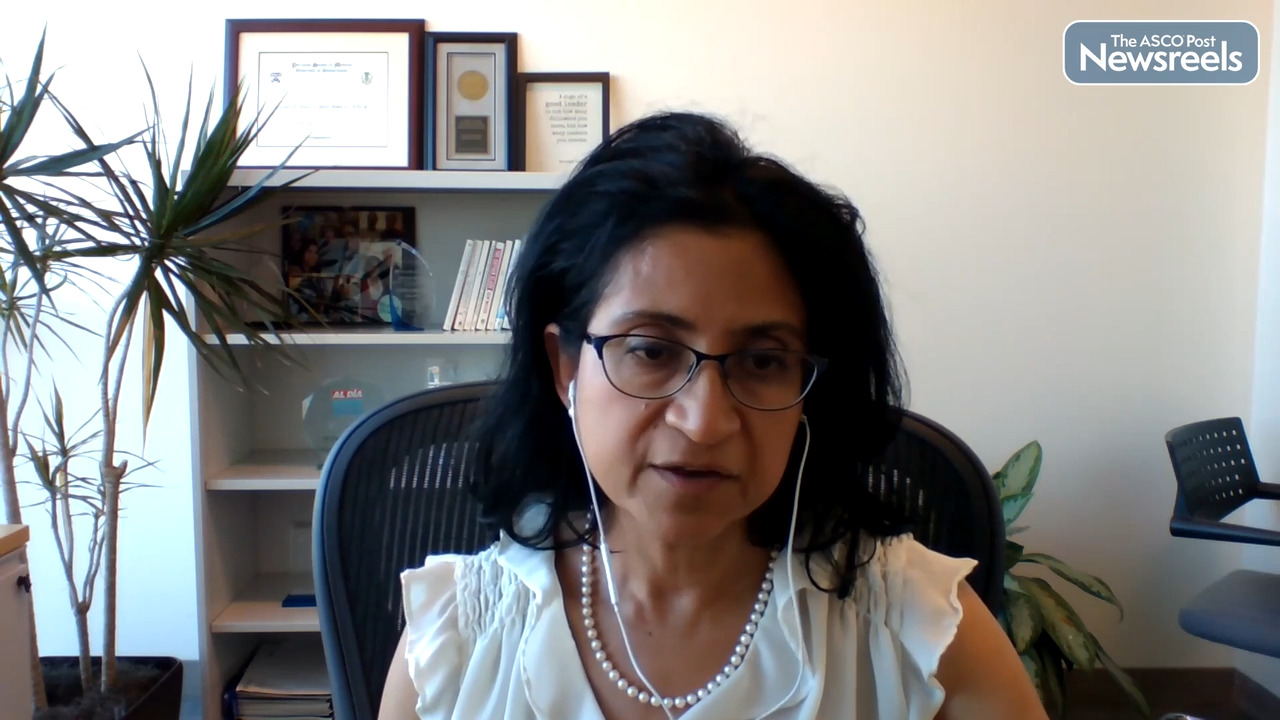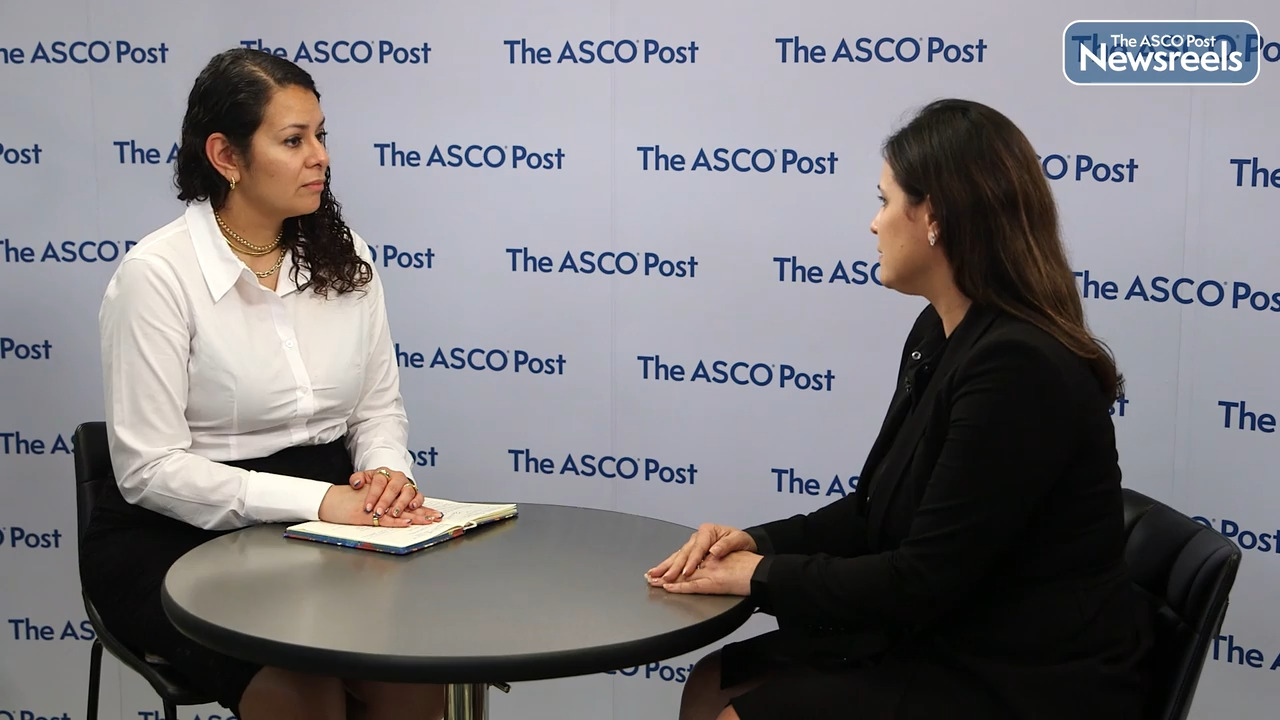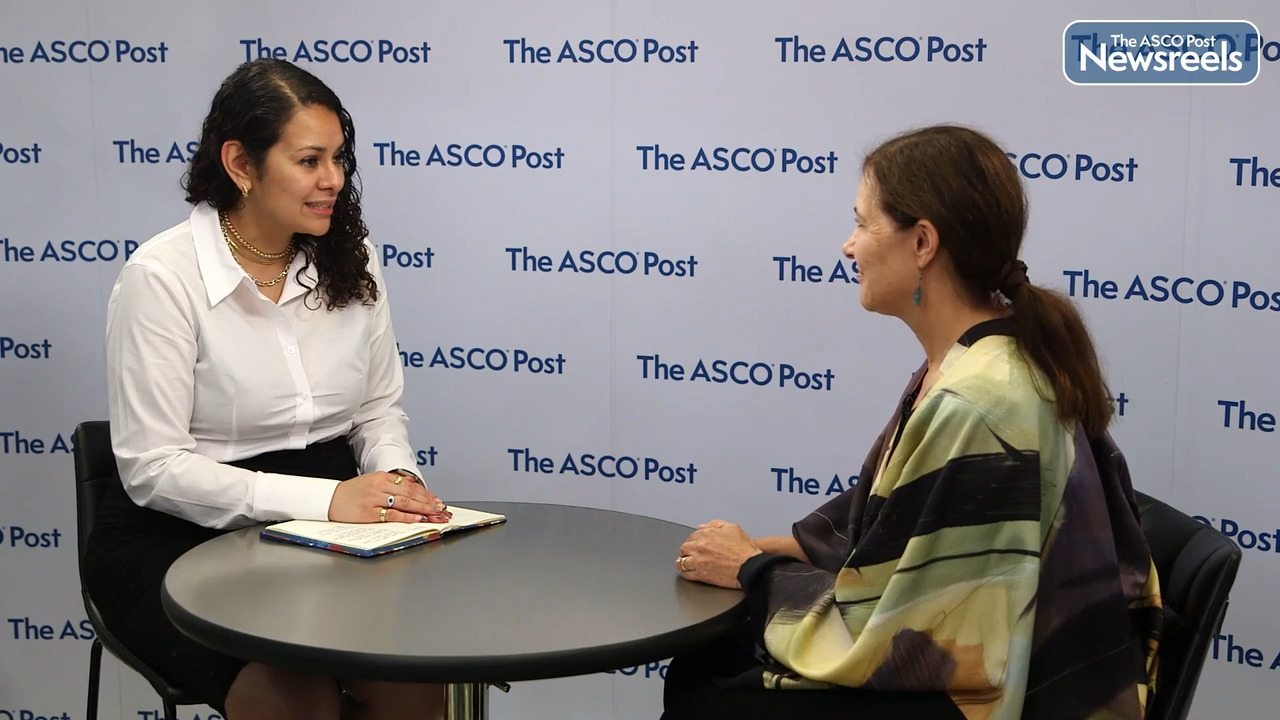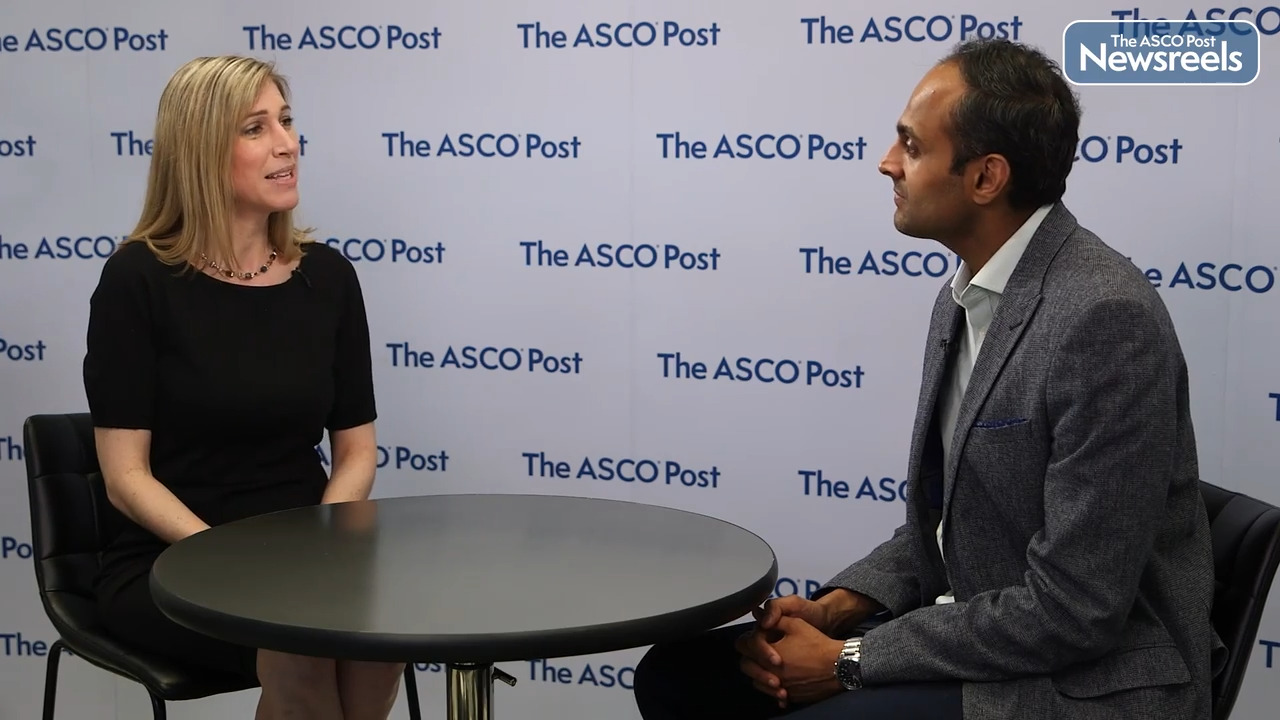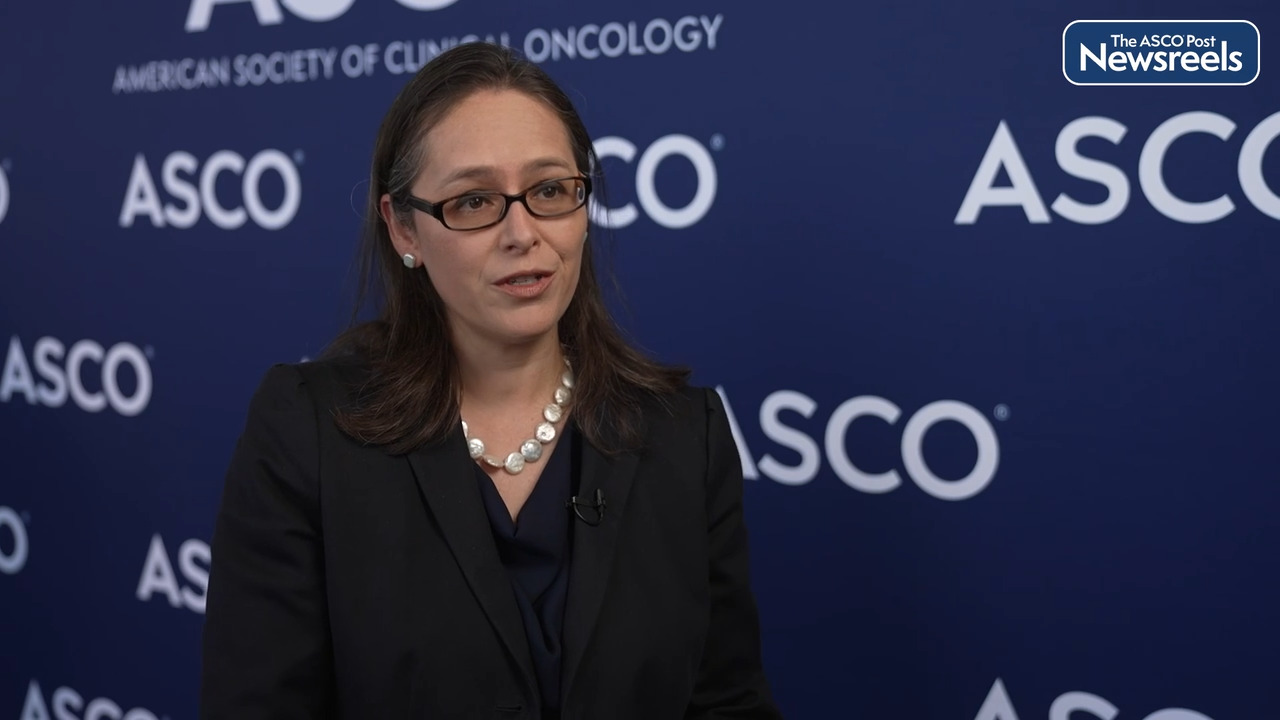Thomas E. Hutson, DO, PharmD, on RCC: Overall Survival Analysis of Lenvatinib, Pembrolizumab, and Sunitinib
2023 ASCO Annual Meeting
Thomas E. Hutson, DO, PharmD, of Texas Oncology, discusses the 4-year follow-up results from the CLEAR study for patients with advanced renal cell carcinoma (RCC). The data showed that lenvatinib plus pembrolizumab continues to demonstrate clinically meaningful benefit vs sunitinib in overall and progression-free survival, as well as in overall and complete response rates, in first-line treatment (Abstract 4502).
Transcript
Disclaimer: This video transcript has not been proofread or edited and may contain errors.
Thomas E. Hutson :
On behalf of my co-investigators, I presented the final pre-specified overall survival from the Phase 3 CLEAR study with nearly four years follow up. The Phase 3 CLEAR study was an international randomized trial comparing Lenvatinib pembrolizumab, Lenvatinib everolimus versus Sunitinib as first-line therapy for patients with advanced renal cell carcinoma.
This data had previously been reported when it met its primary efficacy endpoint, which was improvement in progression-free survival. At that time of that presentation, the secondary endpoints of overall survival and objective response rates were also statistically significant. This resulted in regulatory approval of this regimen and rapid incorporation of this regimen as a major frontline therapy option for patients with advanced RCC throughout the world. This information was also previously published in the New England Journal of Medicine.
Now, with additional 23 months follow up, pleased to report that our overall survival is maintained with a hazard ratio of 0.79, and our other efficacy signals such as progression-free survival and response rate remain robust with this longer follow-up. There were also no new additional safety signals.
So in conclusion, we're pleased to report with additional nearly four years of follow-up the overall survival progression-free survival and objective response rates remain significant and robust when compared with Sunitinib with no new safety signals of the regimen. And Pembrolizumab and Lenvatinib remain a primary therapy for patients with advanced RCC.
The ASCO Post Staff
Carmen E. Guerra, MD, MSCE, of the University of Pennsylvania Abramson Cancer Center, discusses three key abstracts presented at ASCO: strategies to increase accrual of underrepresented populations in Alliance NCTN trials, how patient-clinician education can strengthen partnerships and improve diversity in breast and lung cancer trials, and mediators of racial and ethnic inequities in clinical trial participation among U.S. patients with cancer from 2011 to 2022 (Abstracts 6509, 6510, 6511).
The ASCO Post Staff
Narjust Florez, MD, of Dana-Farber Cancer Institute, and Ticiana Leal, MD, of Winship Cancer Institute of Emory University, discuss the use of tumor treating fields therapy, in which electric fields disrupt processes critical for cancer cell viability. Already approved by the FDA to treat glioblastoma and mesothelioma, the treatment has extended overall survival in this phase III study of patients with metastatic non–small cell lung cancer (NSCLC) with progression on or after platinum-based chemotherapy, without exacerbating systemic toxicities (Abstract LBA9005).
The ASCO Post Staff
Narjust Florez, MD, of Dana-Farber Cancer Institute, and Heather A. Wakelee, MD, of Stanford University, Stanford Cancer Institute, discuss new data supporting neoadjuvant pembrolizumab plus chemotherapy followed by surgery and adjuvant pembrolizumab as a promising new treatment option for patients with resectable stage II, IIIA, or IIIB (N2) non–small cell lung cancer (NSCLC) (Abstract LBA100).
The ASCO Post Staff
Alicia K. Morgans, MD, MPH, and Praful Ravi, MRCP, MBBChir, both of Dana-Farber Cancer Institute, discuss an individual patient-data analysis of randomized trials from the ICECAP collaborative. A PSA nadir of ≥ 0.1 ng/mL within 6 months after radiotherapy completion was prognostic for prostate cancer–specific, metastasis-free, and overall survival in patients receiving radiotherapy plus androgen-deprivation therapy for localized prostate cancer. These findings may help identify patients for therapy de-escalation trials (Abstract 5002).
The ASCO Post Staff
Paula Aristizabal, MD, MAS, of the University of California, San Diego, and Rady Children’s Hospital, talks about using a health systems strengthening approach to improve leukemia care and survival in a public Mexican hospital in the region of the border between the United States and Mexico. The demonstrated increase in overall survival across a decade after implementation of the program seems to validate the use of such models, not only to improve clinical outcomes, but also to build sustainable hospital capacity, financially and organizationally (Abstract 1502).
